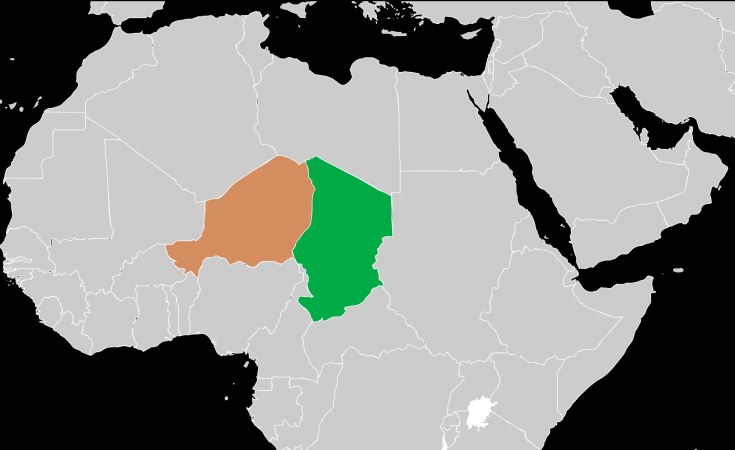When a junta seized power in Niger on 26 July, joint military operations against jihadists between Niger and France were suspended. French troops, ordered to stay in their barracks, face an uncertain future as diplomatic wrangling over a possible pull-out continues.
Some 1,500 French troops are stationed in three locations across Niger, most of them on an airfield in Niamey.
Others are based at Ouallam and Ayorou by the borders with Mali and Burkina Faso in the Sahel region, where jihadists have reported killed numerous military personnel and civilians.
While authorities in France and Niger have confirmed that talks are underway concerning the withdrawal of French troops and equipment from Niger, no deadlines have been announced.
"We went from an exciting mission, a combat partnership with the Nigerien forces, to a somewhat heavy atmosphere," one officer told RFI's Franck Alexandre.
"Technically, we can stay here for a long time," said another soldier, adding that food is well stocked. "But we end up wondering what all this is for."
The days - when temperatures can reach close to 40°C - are spent carrying out maintenance and sometimes discussing strategy with their Nigerien counterparts.
"We sense among them a certain incomprehension of the French position," said one senior officer.
"But soldier to soldier, we manage to talk to each other. At the beginning of August, we could sense among our partners a certain regret to see this very close partnership come to an end. Since then, this feeling has diminished."
Protests
So far, France has ignored calls by the coup leaders to withdraw its troops.
Paris says it recognises only elected president Mohamed Bazoum as Niger's legitimate leader and will not engage with the junta.
In early August, the officers who seized power dismissed several of the military cooperation accords signed between France and Bazoum's government.
On 2 September, tens of thousands of protesters gathered outside the French military base in Niamey, demanding that its troops leave.
Two days later, the prime minister appointed by the junta, Ali Mahaman Lamine Zeine, said that discussions were underway regarding the swift departure of certain "elements" of the French military.
This could in turn be followed by the withdrawal of some 1,000 American soldiers in the country.
According to French newspaper Le Monde, some French troops could be redeployed in neighbouring Chad while others return to France.
Zeine added that he hoped to "maintain cooperation, if possible, with a country with which we have shared many things".
Military equipment
If French troops leave, they will likely take key military equipment with them.
Three Mirage 2000 fighter jets, four Reaper drones and a few helicopters, part of the French arsenal, have been grounded in the last month since the coup.
The pilots and technical staff will likely leave with the aircraft, which French forces want to retrieve as soon as possible.
French President Emmanuel Macron said this week that he would invite parliament to discuss France's strategy in Africa and in the Sahel region, as a follow-up to talks held with opposition leaders on 30 August.
Macron has also refused to recall the French ambassador to Niger, Sylvain Itté, after the junta lifted his diplomatic immunity and called for his expulsion.
Itté has been a persona non grata for the coup leaders since he refused an official invitation to meet them at the end of August.
The French diplomat is now holed up at the embassy in Niamey. While police cannot arrest him on the embassy's compound, he may be arrested if he leaves the property, the junta's prime minister Zeine said.


